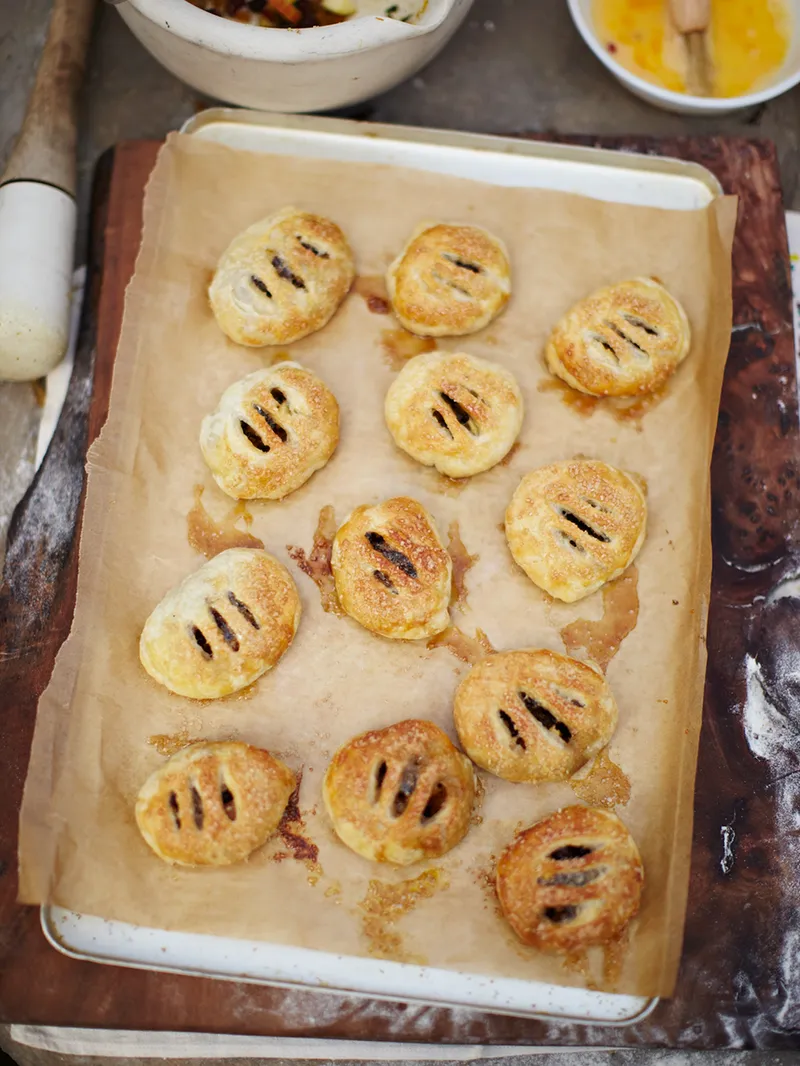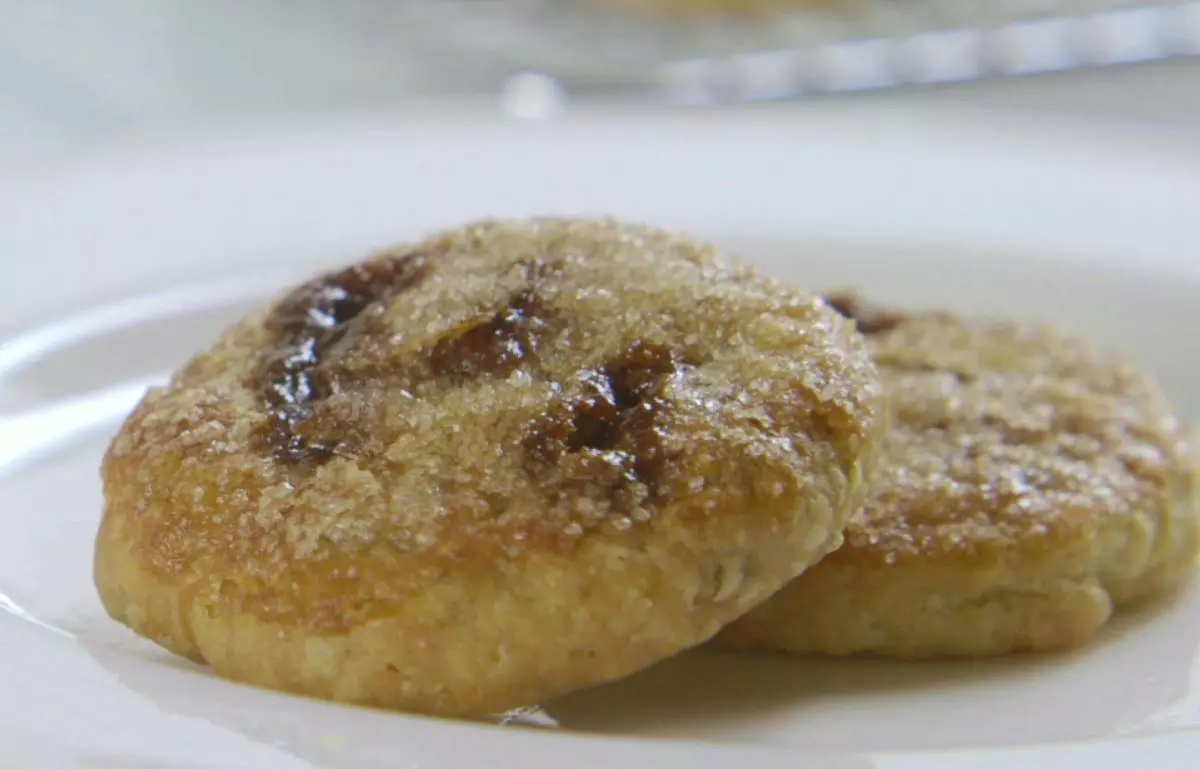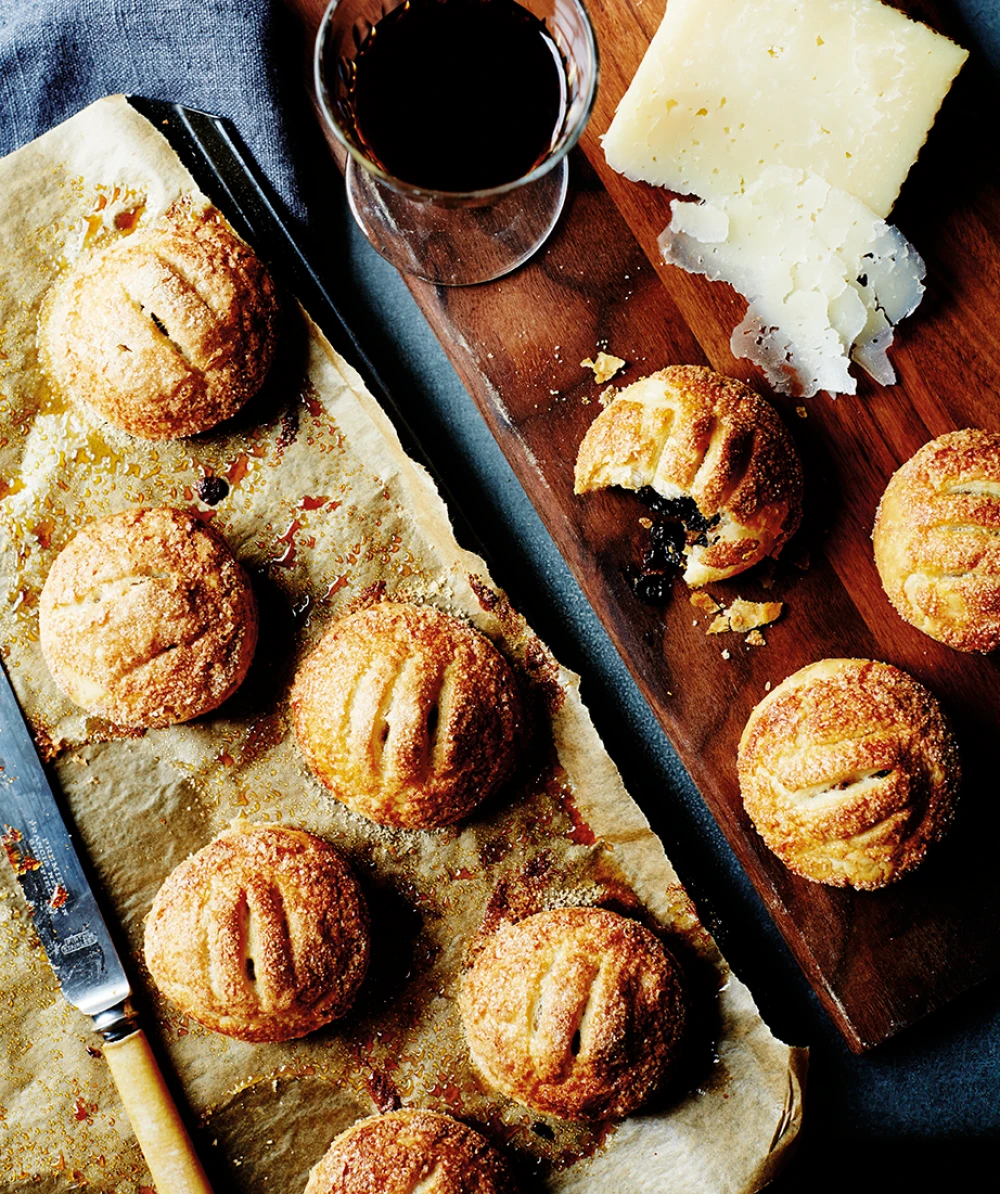The charm of England - Eccles cakes
- Aug 1, 2023
- 6 min read
"there is almost nothing in this country for which a cake hasn't been named." Nigel Slater

Somewhere or other on the television recently somebody mentioned Eccles Cakes and I thought that might be something. I don't think I've done them before either.
So I started 'researching' beginning with Jamie's Great Britain book - one of my favourites I have to say, and on the previous page to his recipe I saw this beautiful picture and it made me so sort of homesick.
I say 'sort of' because there is no way that I would live in England again, and when I have been there in recent years I have not felt at all English. However, I do miss the history, and the countryside, which are sort of intertwined - and I miss London a bit too. This feeling has been reinforced as well by my current reading of Alan Garner's long-listed Man Booker prize book - Treacle Walker, which has such a feeling for olde England in a very timeless and almost mythological way. A feeling for the countryside and country living similar, I think, to what the Aborigines must feel about 'country'. And yes, even today, in the 21st century there are pockets of the country that look like the above glorious vista. Tranquillity can be found if you have the means to escape the city, so pack a picnic and take some Eccles cakes with you.

So Eccles cakes, one of those very localised cakes that you find dotted around the British Isles. Some have disappeared altogether, some are little-known, and some are probably in a revival stage, because the cooks of today often look to the long-ago past for inspiration. The Eccles cake however, has survived. You can even buy the commercially, but locally and half hand-made version from Real Lancashire Eccles Cakes in Coles. And one writer - it may even have been Felicity Cloake in her piece on making the perfect version - said that even though they were produced in a factory they were pretty good. They have been made by the Edmonds family there for 75 years, using machinery they designed especially, and with a lot of hands-on attention along the production line. If you go to the BBC post I have linked to above you can see a short video of how they are made.
So where is Eccles and what are Eccles cakes? Eccles is a town in the Greater Manchester area of England - in Lancashire.

"It’s thought that the Eccles cake was made for the feast day of St Mary in Eccles, whose town festival, known as Eccles Wakes, included the custom of rush-bearing (spreading rushes over the church floor), music and dancing." BBC
Which led to the Puritans, led by Oliver Cromwell banning them:
"they eventually fell under the stern and disapproving glare of the Puritans. Inappropriately indulgent, sinfully tempting to the human soul, and inciting revelry at community events known as Eccles Wakes, the Puritans banned both Eccles cakes and mince pies (also containing currants)." The Daring Gourmet
However it seems the good folks of Eccles paid no attention and continued making and selling their special cakes, mostly amongst themselves, for the first commercial production of the cakes did not occur until 1793 when one James Birch started selling them in his shop.
And so it continued with the Real Lancasthire Eccles Cakes company selling their product all over the world - I saw the USA and the UAE mentioned as well as Australia and Canada. Maybe India? There was one mini crisis relatively recently though:
"the pastry made headlines when the Lancashire Fire and Rescue Service reported at least three blazes in three weeks, thanks to people warming up Eccles cakes in their microwaves. (The theory is that the sugar – which often is sprinkled on top of the cakes – caramelises and gets set alight)."

So what is an Eccles Cake? Well fundamentally it's a flattish sort of pie made from flaky pastry, filled with currants and topped with that sugar. The Real Lancashire Eccles Cakes packets now carry a warning not to microwave, although the owners think that it would probably be alright - but not a good result anyway. Better to reheat in an oven. Because they are best eaten warm, and, as Delia says:
"I think a lump of Mrs. Kirkham's Lancashire cheese and an Eccles cake on a journey or at a picnic really hits the spot."
There are many, many recipes for Eccles cakes out there, and I first canvassed all of my go to English cooks - but surprisingly found nothing from Nigella, or Hugh Fearnley-Whittingstall or, even more surprisingly nothing from the Hairy Bikers - who even may well be from Lancashire. Or is it Yorkshire or even further north, which might explain it? The English are very parochial.
So let's begin with relatively traditional ones. Heston Blumenthal had one, but I could not find it online, however I did find Charming Eccles cakes from Jamie Oliver; Traditional Lancashire Eccles cakes from Delia Smith; Julie Diff's Eccles cakes via Nigel Slater and Eccles cakes from Australian Nelly Robinson/delicious. although she does put lemon curd on top
But these are modern times and so we meddle. Well the cooks who have to write books and fill magazine columns do. As Ottolenghi says, speaking of one of his two different versions - Sort of Eccles cakes and Christmas pudding Eccles cakes with marzipan:
"These are nothing like Eccles cakes, but that’s how they started off, with a puff pastry case. They then went on a very sweet journey – becoming sort-of pop tarts (with a different filling) and then almost-pop tarts (with a rich, buttery pâté brisée) – before going back to something a bit like an Eccles cake. They are marvellously short and rich, so serve with a cuppa-something, and that’s it."
Nigel Slater in an article about the huge number of British cakes, ending with two different Eccles cake recipes says:
"I see no reason why we must stick to the classic Eccles filling, good though it is. Brighten the taste with chopped apricots or a few cranberries in with the currants, or try this spiced ginger filling made with stem ginger and its syrup. Alternatively, this could be a very sound way of using up that sugar-coated crystallised ginger you were given for Christmas." Nigel Slater

Alas there is no picture of the recipe referred to there, but there is a photograph of a version made by Fergus Henderson, famous for bringing offal into the Michelin realm and who serves this version at his St. John's restaurant in London's Camberwell - in a building I discovered, once inhabited by a long ago ancestor. His St. John's Eccles Cakes are made with puff pastry, for which he gives a recipe, and they are apparently much higher in size than the traditional version. Puff pastry is also used in lot's of 'cheat's versions. And:
"I stress the St John in our eccles cake, as I am sure that bakers in Eccles will not recognise them as the Eccles cake they know. Oddly enough, for a restaurant with a carnivorous reputation, we serve a vegetarian eccles cake, omitting the traditional lard; we use puff pastry." Fergus Henderson
Then there are those that use mildly out there ingredients like prunes and alcohol, such as: Eccles cakes from Tamal Ray and Eccles cakes with Pedro Ximénez and Manchego cheese from Will Torrent/Living North. Both of which look pretty delicious I have to say.
But note the oval shape of Tamal Ray's version. Not an Eccles thing. That is a Banbury cake thing - and Banbury is not even in Lancashire - it's in Oxfordshire, although very similar in the making and the content, but also larger. Then there are the Chorley cake, which is flatter, is made with shortcrust pastry and has no sugar topping and the Blackburn cake which has stewed apples instead of currants (I couldn't find a photograph of a Blackburn cake - maybe they have disappeared. Both Chorley and Blackburn are close to Eccles, but further East in Lancashire, and in Yorkshire too there is the sad cake. What a name, though I have to say it does look a bit sad.
Then there are the crossovers. James Martin - who I think is from Yorkshire makes a crossover Blackburn and Eccles cake - and I found that the Australian Women's Weekly had Eccles mince pies.
For let's not forget that mince pies are sort of the same thing. The main differences are that the pastry is different and there is a much larger proportion of filling to pastry with a mince pie. And then there are Garibaldi biscuits, of which Country Life says: "they show what happens when an Eccles cake encounters a steam roller." which I used to love as a child and which we called 'squashed flies' - apparently a distantly related name to Sad cakes and sometimes those flatter Chorley cakes are called squashed flies too.
They are called Garibaldi biscuits either because the British who were carried away with Garibaldi's revolutionary activities in Italy, named the biscuit after him when he visited, or because on that visit he was given some of the biscuits, which he absolutely loved, so the company - Peak Freans called them after him. You learn something every day!
Eccles cakes - not really a cake - more a flat pie. Currants, not other stuff - not even sultanas or raisins. Flaky pastry and sugar on top, so don't microwave them. From Eccles in Lancashire to a supermarket near you.






























Comments